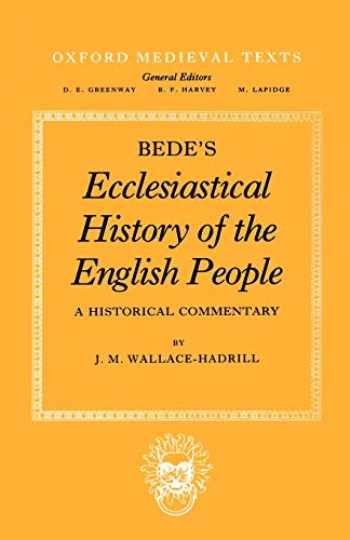

By: Rowan Williams-Benedicta WardMaterial type: TextLanguage: English. 672 or 673 May 25, 735), was a Benedictine monk at the Northumbrian monastery of Saint Peter at Monkwearmouth, today part of Sunderland, and of its companion monastery, Saint Pauls, in modern Jarrow (see Wearmouth-Jarrow), both in the English county of Durham (now Tyne and Wear). Understanding Bede is a key to understanding British society in the present as well as the past. Bedes Ecclesiastical History of the English People An Introduction and Selection. The issues around these questions are not academic or antiquarian. The attraction and fascination of his work is partly in seeing the tension between the strategic use of wealth and political power for religious ends and the example of self-effacing service and simplicity of life offered by some of Bede's greatest Christian heroes.


But Bede also wrestles with the difficult question of how the Church relates to and serves the political order. Bede was a monk and scholar in Northumbria 1 who wrote multiple works on history, exegesis, 2 hagiography, 3 theology, and other topics. 5 Bedes Ecclesiastical History of the English People, ed. Rowan Williams shows in his introduction how Bede works to create a sense of national destiny for the new English kingdoms of the seventh century, a sense that has helped to shape English self-awareness through the centuries, by using the imagery both of imperial Rome and of biblical Israel. MayT-Harting, The Coming of Christianity to Anglo-Saxon England (London. Bedes Ecclesiastical History of the English People, completed in 731, is a masterpiece of historical writing. Yet it is a key text for any student of English history. Starting with the invasion of Julius Caesar in the fifth century, Bede recorded the history of the English up to his own day in 731 A.D. Bede's best known work, An Ecclesiastical History of the English People, was written in Latin and is not immediately easy to understand and follow.


 0 kommentar(er)
0 kommentar(er)
